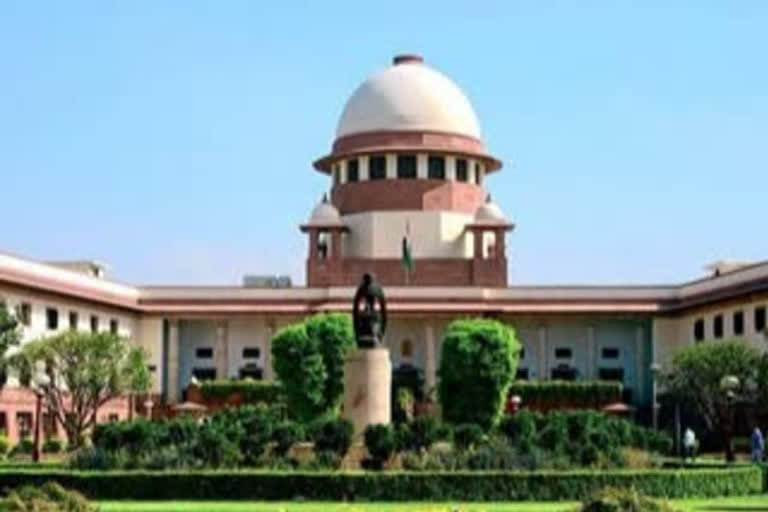New Delhi: The Supreme Court on Wednesday sought response from the Centre on a plea which has challenged the validity of some provisions of the Special Marriage Act which require two adults to put personal details in the public domain for scrutiny before their wedding and they might have a "chilling effect" on the fundamental right to marry and privacy.
A bench headed by Chief Justice S A Bobde agreed to hear the petition filed by a Kerala-based law student who has claimed that some provisions of the Special Marriage Act violate the fundamental rights of the couple intending to marry, depriving them of their right to privacy under Article 21 of the Constitution.
Also read: Delhi HC dismisses plea for law exam from home
Issue notice, the bench, also comprising Justices A S Bopanna and V Ramasubramanian, said.
During the hearing conducted through video-conferencing, the bench asked the counsel appearing for the petitioner, "You tell us what is the solution?"
The moment you delete these, the people for whose benefit it was enacted will suffer, the bench observed.
The counsel appearing for petitioner Nandini Praveen referred to the apex court's landmark verdict declaring Right to Privacy as a fundamental right under the Constitution.
The lawyer said the petitioner has raised the issue of privacy and also about the dignity of individuals.
You are saying about privacy and that the whole world comes to know about it. But look at its positive point also, the bench observed.
The plea has sought striking down of sections including 6(2), 7, 8 and 10 of the Special Marriage Act as "unjust, illegal and unconstitutional".
"Publication of personal details often might have a chilling effect on the right to marry. In other words, couples are asked to waive the right to privacy to exercise the right to marry. This infringes the rights of autonomy, dignity and the right to marry, of the various couple," the plea has said.
"This writ petition is challenging certain provisions of the Special Marriage Act for those who violate the fundamental rights of the citizens under Articles 14, 15 and 21 of the Constitution. The impugned provisions require the parties to the marriage to publishing their private details, open for public scrutiny, before 30 days of intended marriage, it said.
It said the provisions also allow anyone to submit objections to marriage and empower the Marriage Officer to inquire into such objections.
"The requirement of notice before marriage is absent in the Hindu Marriage Act and customary laws in Islam. Therefore, the said provision is also discriminatory and violative of Article 14 (right to equality)," it said.
It said one of the provisions required that "Marriage Officer shall thereupon cause a copy thereof to be affixed to some conspicuous place, which is violative of the fundamental right to privacy and equality.
The provisions throwing the personal information of the individuals open to public scrutiny, seriously damage one's right to have control over her or his personal information and its accessibility, it said.
The plea referred to the provisions and the alleged illegality attached to them.
"Section 5 of the (Act) requires that a notice of intended marriage to be given by the parties to the marriage to the Marriage Officer of the district where at least one of the parties to the marriage has resided for a period of not less than thirty days immediately preceding the date on which such notice is given," it said.
Section 6 mandates that all such notices received shall be entered in the marriage notice book and the Marriage Officer shall publish a notice by affixing a copy thereof to some conspicuous place in his office, it said.
Also read: Find immediate solution to basement flooding in Greater Kailash-II: HC
As per Section 6(3), if the parties do not permanently reside within the jurisdiction of the officer who received the notice, a copy shall be transmitted to cause its publication in the relevant marriage office, the plea said.
"Publishing details of notice of marriage by the marriage officers include the details of the parties like names, date of birth, age, occupation, parents' names and details, address, pin code, identity information, phone number etc. This is a particular requirement of the Act...," it said.
(PTI report)



